A stolen bicycle leads a young man into an unpredictable encounter with unintended consequences that raise questions about privilege, bias, and Israel’s treatment of one of its most disadvantaged communities – African migrants, refugees, and asylum seekers.
This is the premise of “White Eye,” a short fast-moving, hard-hitting film by Israeli director Tomer Shushan that was recently shortlisted for a 2021 Academy Award. The movie, up for live-action short film, is one of 10 finalists out of nearly 200 films that qualified for this category.
The final Oscar nominations will be announced on Monday, March 15, where five films will move on to officially compete for the prestigious trophy at the 93rd Academy Award on April 26. “White Eye” could be one of them.
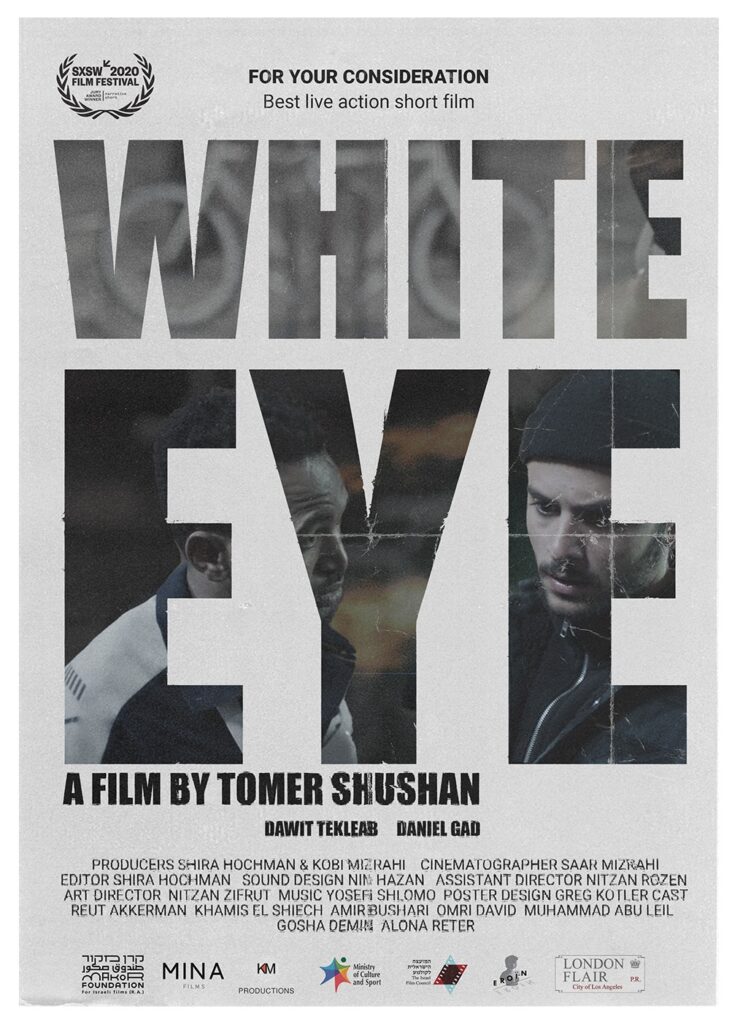
“White Eye,” is the story of Omer Attias, a Tel Aviv resident who finds his stolen bike on Meretz Street, where an Eritrean asylum seeker claims he bought it from the Tel Aviv Central Bus Station for his daughter. When Omer calls the cops on Yunes — assuming he stole it — the situation becomes more dire than he could have thought.
Shushan tells NoCamels he wrote the film based on a similar situation that happened to him in real life. While the moment ended up better than it did in the movie, he explains, Shushan “felt so bad” that he went home and wrote a script about the incident in 40 minutes.
“It was like I woke up from it,” he says, “I’ve always compared it to that because I used to do it when I was younger. I had lots of crazy dreams and I used to wake up and I had a notebook and I just started to write everything before I forgot it. So it felt like that, to experience something crazy and to write it down before you forget all the details.”
“It affected me really hard,” he adds, “I really wanted to make a film and to solve the issue and also try to bring a message to the audience that if they think and breathe before they react, maybe they can save someone else’s life.”
Shushan shot the entire movie in just one take, which meant the film’s actors had to do many rehearsals and keep shooting the movie in its entirety over and over. The film had support from the Makor Foundation
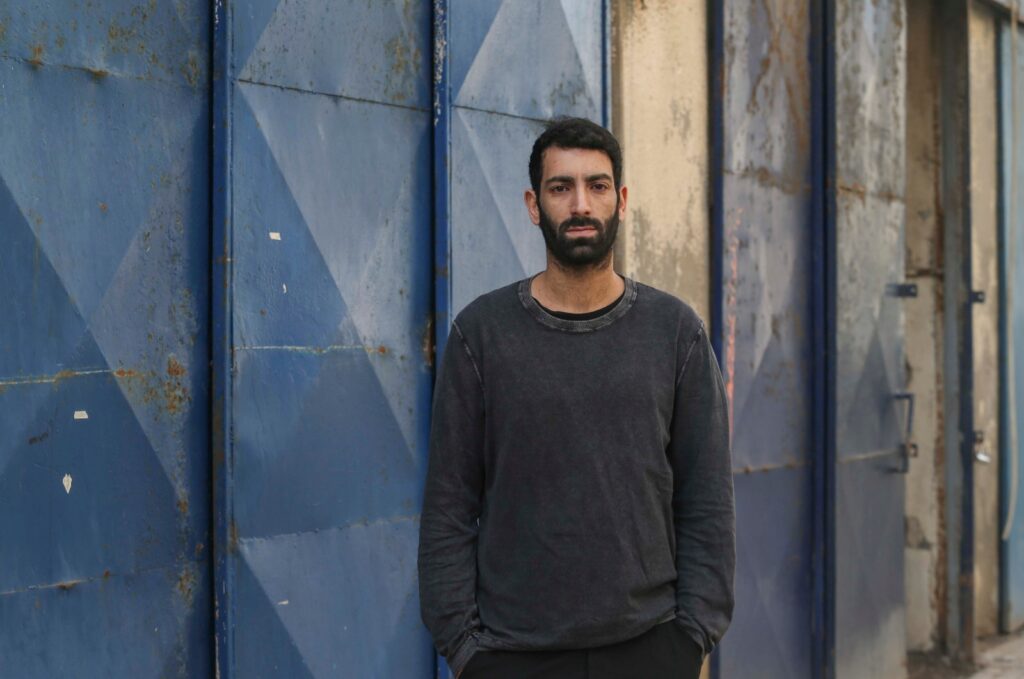
“I really wanted to reflect and to make the audience feel connected to the main character, which is a person [who is] doing something without thinking and from his instincts, and doesn’t have a moment to stop and breathe,” he tells NoCamels. “And I compared it to cuts in films. When you have a cut, you have a moment to breathe, to understand. And I wanted to be in one breath, in one moment. So I made it in one take and it was super challenging because it’s just to start a camera when the film starts and stop it when the film ends. It’s the whole film.”

The film is made up of a diverse group of Hebrew speakers of different backgrounds that make up Israel’s current social structure. Some are actors, while others are just people that Shushan plucked from interactions. Omer is played by Daniel Gad, an Israeli actor who starred in the popular sitcom “Shababnikim.” The African actors are played by real people that Shushan met on the streets of Tel Aviv.
SEE ALSO: Award-Winning Israeli-Born Director Looks To Come Home For His Next Film
Sign up for our free weekly newsletter
Subscribe“I just started to talk to them, and tell them the story, and they really wanted to do it because they felt they really connected to the message,” he says. “It doesn’t put them in a position that they’re miserable — just that they are there and we all need to treat each other the same. So they felt like it was good for them to do it and I’m really happy about that.”
Shushan believes that one of the reasons the film got accepted to so many film festivals — over 100 in total — is because the “Black Lives Matters” social movement, against racially motivated police brutality, has become so prominent.
“I think that the topic is something that speaks to a lot of people right now,” he tells NoCamels, “In Israel, a place known for its conflict between Jews and Muslims, this is something kind of new. They want to know about it.”
The film went on to receive much acclaim, including winning the best narrative short film award at the 2020 SXSW Film Festival, where it qualified for the Oscars.
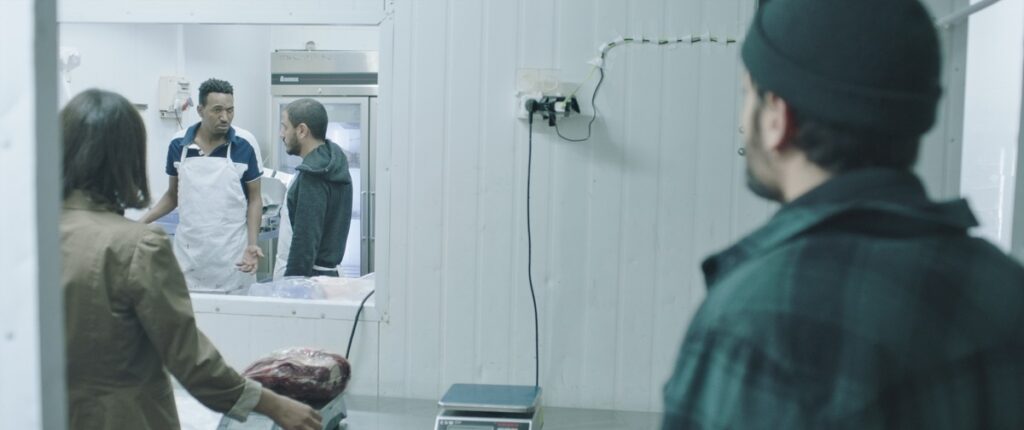
Afraid of disappointment, Shushan didn’t want to meet anyone the night that the Oscars shortlist was announced although his team wanted to get together.
“They were choosing 10 out of 174 films,” he says, “I didn’t want to be net to anyone, but then the producer told me he would come over anyway. Then I saw we got a message from our PR company, which said, in capital letters, ‘WE DID IT!’ and I was in shock. I didn’t expect this.”
Shushan has a full-length feature film in the works and is working on the Israeli TV series “Torso.” Meanwhile, he continues to wait and see if “White Eye” will appear on the final Oscars nominations list. He says he’s “very nervous” and “suffering from lack of sleep” but that it’s not about the yes or no, it’s about the unknown.
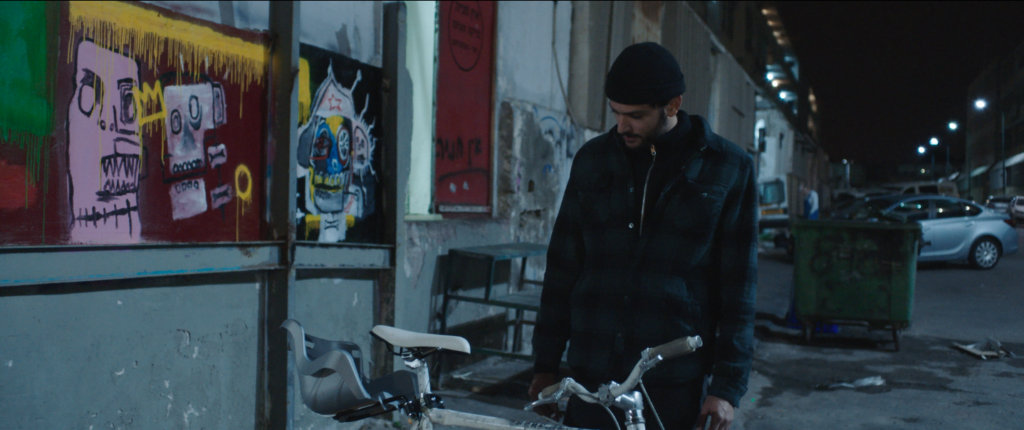
Even if it’s a no, he says, the experience “has really changed me as a person.”
“It has made me see a community in a different way than I saw before. I didn’t know that they live in such a fear from the authorities. And to know that we can solve things between ourselves if we just talk about things. It’s something that I really believe in, something that I learned. I got a big lesson that day it happened. So I think it was very important for me to make a film about it, because that’s the whole meaning of art and films that you express yourself and show something to the world. And I guess that’s why I did it,” he says.
Related posts

Rehabilitation Nation: Israeli Innovation On Road To Healing

Israeli High-Tech Sector 'Still Good' Despite Year Of War


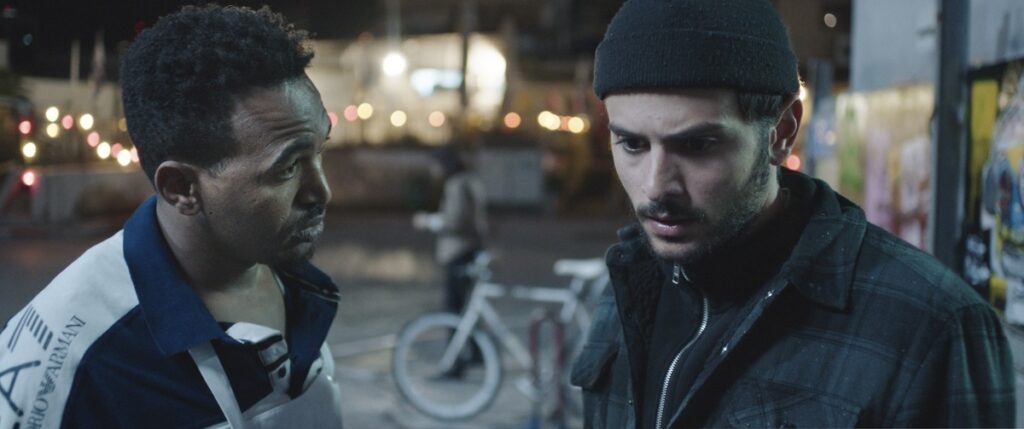


Facebook comments